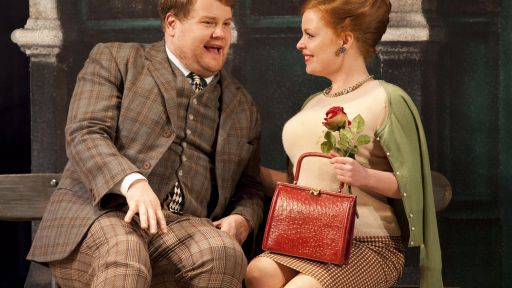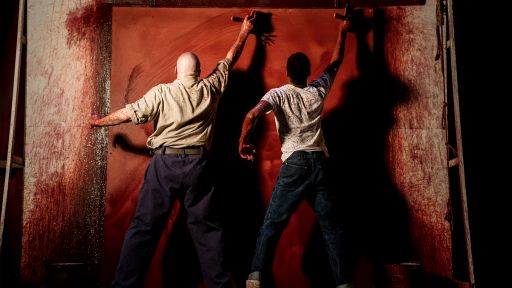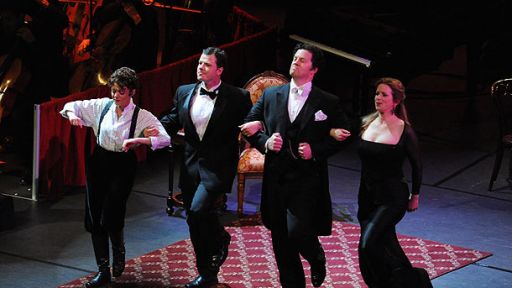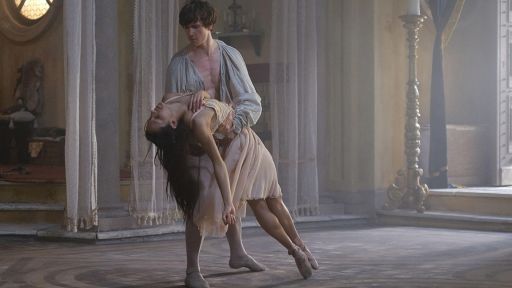Hear from Jocelyn Bioh, Saheem Ali, Jacob Ming-Trent and more about how they worked to make Shakespeare’s comedy resonate with modern audiences.
Features

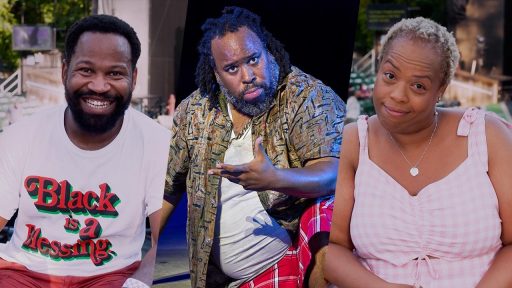
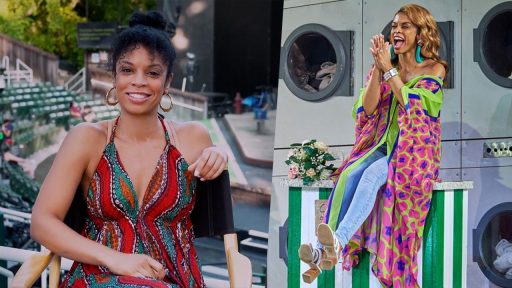

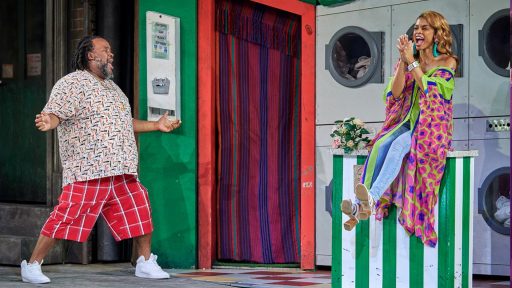


Updating and adapting a Shakespearean play is a tall order and not very easy, but one that I was glad to take on.
♪♪ Hey, hey!
♪♪ Come let me say Wa Wa.
Wa wa Shakespeare I think continues to remain relevant because of all of the different topics that he was addressing in terms of class and wealth and status and relationships within families and friendships.
Those are universal ideas that I think are never going to go away.
By doing different kinds of adaptations with certainly different groups of people that we haven't seen do it before.
Just kind of adds and serves the complexities and the ideas that he was investigating and all of the plays he made way back when.
Oh yeah, Madam Page. Me, I was just going to come to your house.
Trust me, I was coming to you. You don't look well o---. Nay, I'll never believe that. And neither should you eh? Hey, hey!
Whenever I work on Shakespeare, I'm always looking for ways to make it personal to me that I really subjective that I find speak to the current moment. And so for me, coming out of this pandemic, coming out of the great racial reckoning that we had, I wanted to find a piece that elevated Blackness in America, but did it in a way that was joyful. That was lively.
That was celebratory because we've had so much of the opposite.
But one of the things that's important to me is to grab young folks, you know, and people that haven't been listening to this writer as long as I have.
A way to do that is to throw them a little bit of colloquial references like LeBron James, or, you know, things like that, so that people can hear it and feel more comfortable and familiar with it.
I will stare him out of his wits. I will awe him [makes fighting noises] with my club.
I will hang like LeBron James over the cuckold's horns.
I think my rule of thumb when I was adapting was like any sort of like word or phrase or term that just absolutely would not fly today or didn't make sense in any way in today's, you know, society was where I decided to take liberties with, you know, switching and changing. But for the most part, I wanted to keep the story of Merry Wives as close to the original text as possible, but still allow people to feel like they could come in, understand the text and have a good time.
Shakespeare is for everyone. I grew up in Kenya.
One of my first productions was Romeo and Juliet. Everyone was black, you know?
And so my entry point to that to Shakespeare was I felt permission to be in that production. And so things are different here in America.
And I just feel like any opportunity that we can take here to show that Shakespeare is for everyone and everyone is invited and everyone can speak that text and make it their own.
These actors are speaking Shakespeare and making it their own speaking, a dialect that embraces people who aren't normally invited to Shakespeare.
And so I think for me, the current moment, especially is about making Shakespeare feel that people of color can embody it, can inhabit it and are welcome to come and appreciate it.
Here's the truth of it. She came to me on an errand from Pastor Evans.
Well?
Uh, yes, to desire her. Peace I pray you.
Peace-a your tongue! Speak-a your tale.
To desire this gentle woman, your nurse to speak a good word to the marvelous Anne Page for my boss in the way of marriage. You see? I'll never put my finger in a fire I need not to.
Pastor Evans send-a you?--Tarry you a little-awhile.
Theater's been a part of our culture, dating back to cavemen, you know, so it's always there. And I think, in New York, you can steal that.
People want to, get out and experience things together and kind of get around the campfire together. If you know what I mean.
Access to the theater is important because it should be for everybody.
Oftentimes theater tickets are so expensive.
It really alienates a lot of groups of people and marginalized groups from being able to see it.
Audiences don't always feel welcome. Don't always feel welcome, don't always have the resources to be able to get themselves there.
And so part of the mission of Shakespeare in the Park is to keep it free.
It's free Shakespeare in the park. And so public theater, public television, you know, this just is such a beautiful marriage between these institutions.
Whose mission it is to bring great art, great performances to the public for free.
Great Performances: Merry Wives is a especially important to see in today's world because it brings you joy.
And I think we could use a lot of that these days.
You May Also Like
